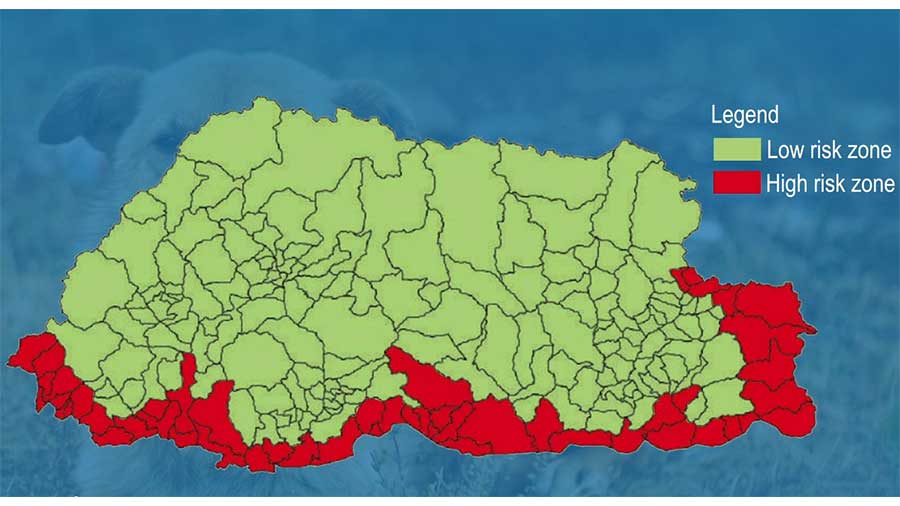
With recent outbreaks of rabies reported in some districts, the disease still remains a public health concern. However, the National Centre for Animal Health remains hopeful of eliminating human rabies deaths in the next seven years. For now, the centre says the challenge still remains with Bhutan sharing a porous border in the south.
Every year, the country has been reporting rabies cases. With 20 cases each, 2020 and 2021 recorded the highest number of rabies outbreaks.
This year, a total of eight outbreaks of rabies were reported in the country so far. The places of outbreak were in Samtse, Pema Gatshel, Samdrup Jongkhar, Sarpang and Chhukha.
From the reported outbreaks, in the last one decade, four human rabies deaths were reported in the country, one each in 2013, 2016, 2020 and 2023. The rabies virus is infected to humans through the bite of an infected animal, mostly dogs. If left untreated, it is 100 per cent fatal. In Bhutan, most human rabies infections and deaths were caused by dog bites.
“Currently, the outbreaks are only restricted in the southern parts of the country where these areas share a porous border with the neighbouring states of India. Due to the porous nature of the border, there is free and unregulated movement of animals due to which there is movement of rabid animals across the border,” said Sangay Rinchen, Programme Director of the National Centre for Animal Health.
In 2022 and 2023, the Nationwide Accelerated Dog Population Management and Rabies Control Programme sterilised more than 61,000 dogs in the country. Over 58,000 of the total were vaccinated against rabies achieving 94 per cent vaccination coverage. The centre says that with the continued implementation of different measures, they are hopeful to eliminate dog-mediated human rabies in Bhutan before 2030.
“If you really look into this, it is not only Bhutan that is implementing measures like mass dog vaccination, conducting awareness campaigns so that people are aware of what they have to do if they are exposed to suspected animals, as well as educating the community and engaging stakeholders towards achieving this goal. Although it’s very unfortunate we had a recent human case of rabies, it’s a big offset to the progress we have been making so far but through these efforts in all the countries in the region as well as in the globe that is taking place, we are confident that we can achieve elimination of dog mediated human rabies by 2030,” said Sangay Rinchen.
According to an Indian media outlet, more than 300 people died due to rabies in India last year. Neighbouring state West Bengal reported the maximum cases after Delhi. The disease is also endemic in India.
Samten Dolkar
Edited by Kipchu







